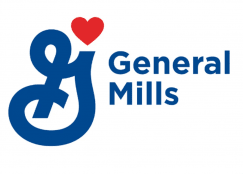Al-Haq welcomes General Mills’ decision to divest from “its joint venture in Israel”, where products from its subsidiary, Pillsbury, have been produced in the Atarot industrial zone within occupied East Jerusalem in the Palestinian territory. Atarot is an Israeli industrial settlement, where both Israeli and multinational corporations operate producing a variety of products, including for export, in clear breach of international law.[1] In June 2020, Al-Haq released a report, ‘Atarot Settlement, The industrial Key in Israel’s Plan to Permanently Erase Palestine’, outlining Israel’s discriminatory measures against Palestinians through its operation of industrial settlements, using the Atarot settlement as a case study.[2]
From research for its Atarot Report, Al-Haq identified 24 Industrial settlements operating in the Occupied Palestinian Territory (OPT), while having plans to construct five more settlements.[3] Israel uses these settlements to further fragment the Palestinian people, implement an apartheid regime and as part of its broader annexation policy towards the OPT.[4] These businesses sustain Israel’s illegal colonial enterprise that would otherwise lack any economic incentive. To encourage international investment, Israel uses a number of policies to encourage businesses to operate in illegal settlements, such as reduced rent and tax rates.[5]
General Mills’ subsidiary, Pillsbury, markets branded foods, specifically frozen dough products.[6] Through its research, Al-Haq highlighted how the Shalgal company operates and produces Pillsbury branded products in the Atarot settlement.[7] Testimony was given by a Palestinian resident, who lives in proximity to the illegal settlement, that “when they pour the flour [into the mixers which are outdoors], the flour comes into our house. Sometimes the bags of flour overflow into the house.”[8] This highlights the direct adverse human rights impacts that the illegal industrial settlements have upon the Palestinian communities. Other adverse impacts include the settlement companies’ complicity in appropriation of land, settler transfer in, and the continued denial of the right of self-determination and permanent sovereignty of the indigenous Palestinian people over their lands and natural resources.
Given the financial incentive to operate in settlements, the success of campaigning to urge General Mills to divest from its holdings in Israel and the OPT cannot be understated. This represents an achievement for international pressure against Israel’s illegal occupation and apartheid practices, including those advising compliance with the UN Guidelines on Business and Human Rights (UNGPs), which requires companies to conduct enhanced due diligence in conflict affected areas, such as Palestine, and to disengage from their operations which contribute to human rights harms.
In this respect, General Mills represents just one of many companies operating in illegal settlements. In 2020, the UN concluded that 112 companies, including General Mills are violating international law by operating in the OPT, yet the list failed to include many other businesses are also operating in illegal settlements, also in breach of international law.[9] The divestment of General Mills underscores the critical importance of the UN Database on Business and Human Rights and the urgency in ensuring its annual update as required under paragraph 17 of UN Human Rights Council resolution 31/36.
Al-Haq calls on all multinational corporations operating in illegal Israeli settlements to immediately cease operations, in line with their responsibilities under the UNGPs. So long as illegal settler colonialism remains profitable, Israel will continue to operate its illegal settlements throughout the OPT. Companies must divest from their holdings that oppress the Palestinian people as a whole and support Israel’s apartheid state framework on both sides of the Green Line.
[1] Legal Consequences of the Construction of a Wall (Advisory Opinion) 2004, para. 120 available at: <https://www.icj-cij.org/files/case-related/131/131-20040709-ADV-01-00-EN.pdf>
[2] Al-Haq, ‘Atarot Settlement, The industrial Key in Israel’s Plan to Permanently Erase Palestine’ (2 June 2020) available at: <https://www.alhaq.org/cached_uploads/download/2021/06/10/atarot-unlocked-1623310412.pdf>
[3] Ibid.
[4] Ibid.
[5] Ibid.
[6] Ibid.
[7] Ibid.
[8] Ibid. The quoted interview was taken on 21 September 2019 and is on file with Al-Haq.
[9]Investigate, ‘UN list of companies involved in illegal Israeli settlements in the occupied Palestinian Territory’
(14 February 2020) available at: <https://investigate.afsc.org/updates/un-list> ; UN Human Rights Council, ‘Database of all business enterprises involved in the activities detailed in paragraph 96 of the independent international fact-finding mission to investigate the implications of the Israeli settlements on the civil, political, economic, social and cultural rights of the Palestinian people throughout the Occupied Palestinian Territory, including East Jerusalem Report of the United Nations High Commissioner for Human Rights’ (28 February 2020) A/HRC/43/71 available at: <https://ap.ohchr.org/Documents/dpage_e.aspx?si=A/HRC/43/71> ; It should be noted this list is not definitive of all companies operating in illegal settlements or exploiting Palestine’s natural resources, for example, Fosun International, which owns AHAVA, a cosmetics company who extracts minerals from the Dead Sea and operates from an illegal settlement, is not included on the UN list.


